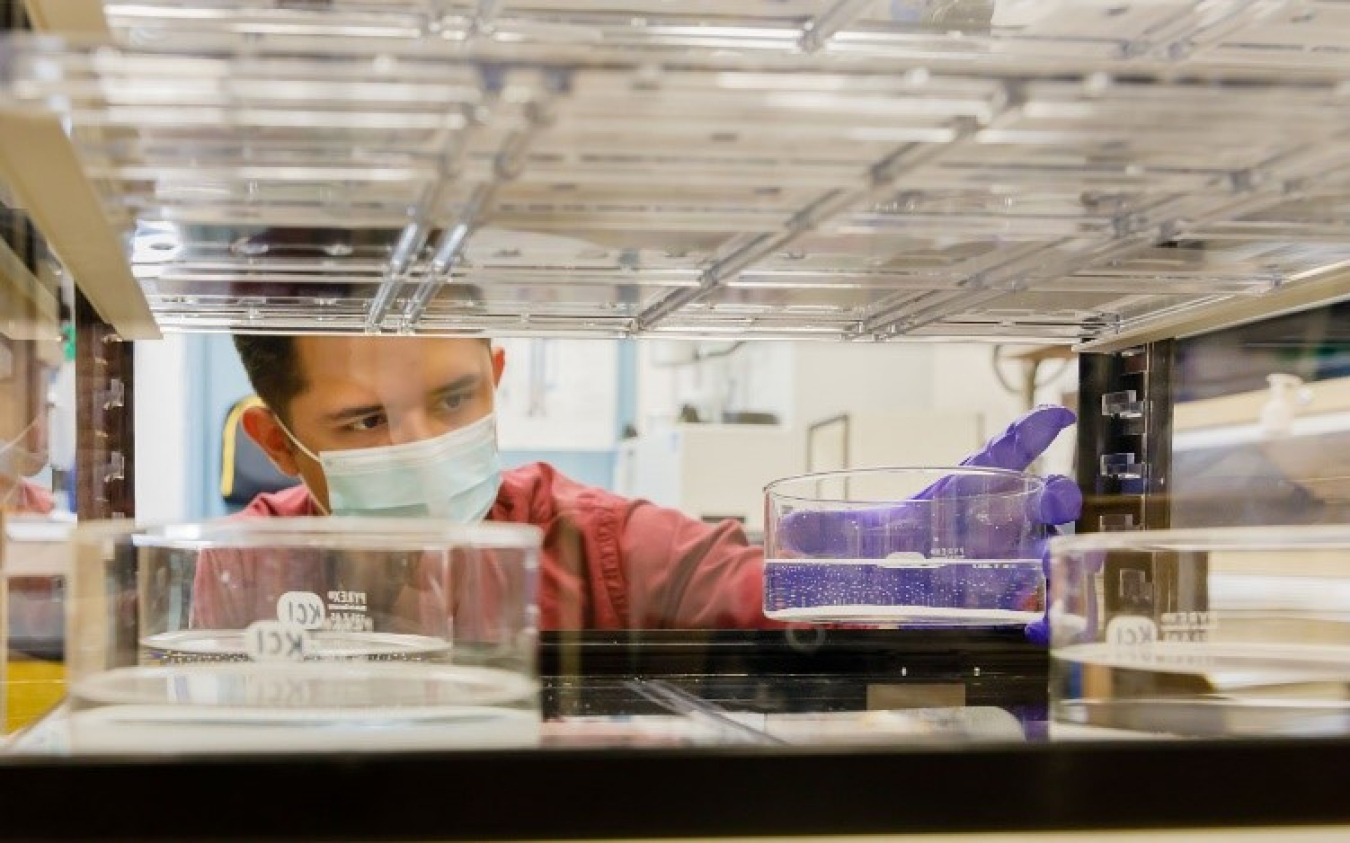NNSA’s Minority Serving Institution Partnership Program (MSIPP) has awarded four new grants, bringing the total number of grants to 17, in order to better serve students and Minority-Serving Institutions (MSIs) in STEM disciplines.
National Nuclear Security Administration
June 23, 2021
NNSA’s Minority Serving Institution Partnership Program (MSIPP) has awarded four new grants, bringing the total number of grants to 17, in order to better serve students and Minority-Serving Institutions (MSIs) in STEM disciplines.
The MSIPP grants support the development of a diverse, highly skilled, and enduring pipeline of talented students in STEM fields who are working to advance America’s nuclear security agenda. Specifically, through its support of MSIs, MSIPP provides competitive, consortia-based grant awards with a three- to five-year period of performance.
This program increases opportunities for minority students to jump in and experience Science, Technology, Engineering, and Math (STEM) through real-world applications at NNSA labs, plants, and sites. And when students see STEM theories from their college curriculum being applied by NNSA scientists and engineers, they are even more enthused about STEM fields and joining the Nuclear Security Enterprise.
“The Department of Energy and NNSA are really excited about expanding MSIPP,” said Frank Lowery, NNSA’s Associate Administrator for Management and Budget. “This program increases opportunities for minority students to jump in and experience Science, Technology, Engineering, and Math (STEM) through real-world applications at NNSA labs, plants, and sites. And when students see STEM theories from their college curriculum being applied by NNSA scientists and engineers, they are even more enthused about STEM fields and joining the Nuclear Security Enterprise. It’s a win-win because our recruiting diversity is increasing and the students’ excitement about STEM fields is rising as well.”
The four new consortia, which put students in MSIs around the Nation to work in DOE/NNSA labs, plants, and sites, are:
- The Consortium on National Critical Infrastructure Security
- The Growing STEMs Consortium
- The In- and Ex-Situ-Quality Control of Additive Manufacturing Consortium
- The Consortium for Laser-based Analysis of Nuclear and Environmental Materials
The Consortium on National Critical Infrastructure Security (CONCISE) aims to attract, educate, and train minority students in the STEM fields, especially cybersecurity, while formulating a sustainable workforce recruitment pipeline between its MSIs and DOE/NNSA facilities. Its members include the University of Texas at San Antonio; The University of Nevada, Las Vegas; North Carolina A&T State University; and Savannah State University, along with Sandia National Laboratories, the Nevada National Security Site, and Idaho National Laboratory.
The Growing STEMs Consortium: Training the Next Generation of Engineers for the DOE/NNSA Workforce, consists of faculty from Texas Tech University, the New Mexico Tech Energetic Materials Research & Testing Center, the University of California Merced, and Amarillo College. Partners for this Consortium include Consolidated Nuclear Security, which manages and operates the Pantex Plant and Y-12 National Security Complex (Y-12), Los Alamos National Laboratory (LANL), and Sandia. This Consortium is designed around engineering, with an emphasis on energetic materials, and is focused on priming the next generation of engineers for work with the Nuclear Security Enterprise, as well as training students for technician certifications, including welding, machinist, electrician, and non-destructive testing.
The In- and Ex-Situ-Quality Control of Additive Manufacturing Consortium’s goal is to establish a sustainable pipeline of under-represented students in STEM fields from MSIs, with advanced knowledge and experience to serve at NNSA’s labs, plants, and sites. This Consortium is focused on skills required for in- and ex-situ-quality control of polymer and metallic additive manufacturing components, two distinct but essential techniques used in the growing field of 3D printing. New Mexico State University (NSMU), Navajo Technical University, and Prairie View A&M University are involved in QCAM, along with Doña Ana Community College, as a branch of NMSU. In addition to the three academic partners, LANL, Oak Ridge National Laboratory, and Kansas City National Security Campus will partner with this Consortium.
The Consortium for Laser-based Analysis of Nuclear and Environmental Materials (LANEM) is comprised of Florida Agricultural & Mechanical University, Delaware State University, and Alabama State University, along with Y-12 and Pacific Northwest National Laboratory. This Consortium seeks to create a sustainable, diverse pipeline of individuals in the science and technology field for the detection and identification of materials that are of interest to NNSA. The Consortium’s two main objectives are strengthening its university partners by developing interdisciplinary collaborative projects and increasing diversity in the NNSA workforce, especially in the STEM fields.
Each consortium is critical for the future of the Nuclear Security Enterprise. Even more importantly, this expansion of MSIPP is key to cultivating talented STEM students throughout the Enterprise and developing a diverse, highly skilled workforce committed to our Nation’s security.

